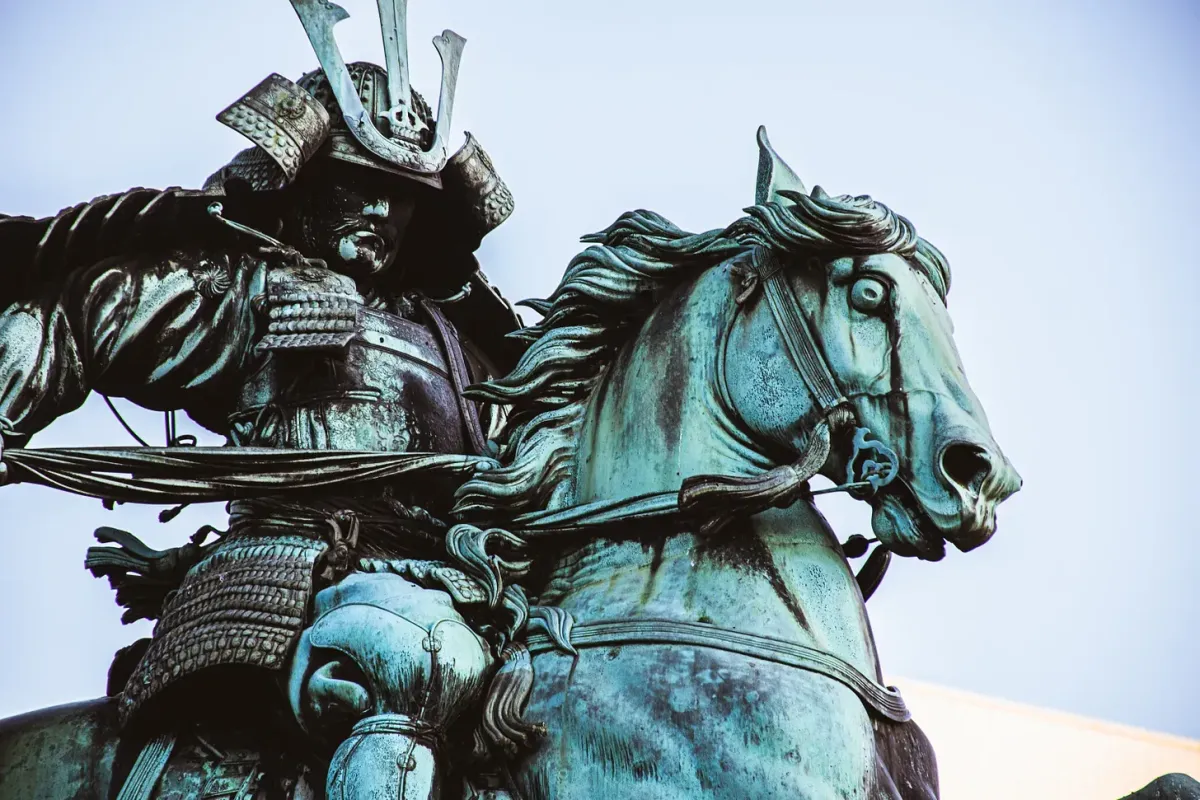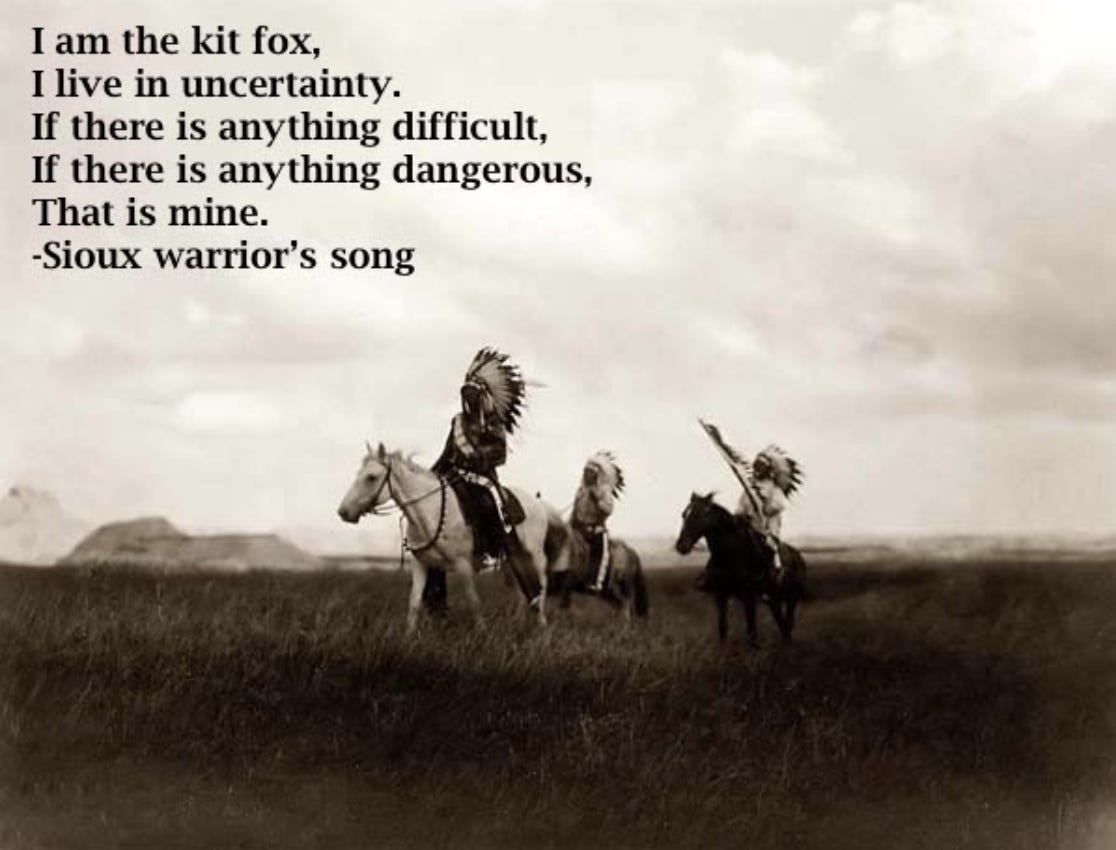
The meek shall inherit the earth?
Turn the other cheek?
Let’s make no mistake: weakness is not a virtue.
The inability to retaliate against an oppressive force is not a virtue.
I’ll go a step further: the teaching of (AKA, programming) of virtue being a “turn the other cheek” thing is a control mechanism. Meant to keep the masses from getting too uppity.
And no matter how we may romanticize and anthropomorphize animals, they cannot be virtuous. A mama bear defending her cub is acting out of instinct, not by choice. They cannot do otherwise.
Only humans with full-spectrum consciousness and the capacity to willingly do harm (i.e., kill), and with the capability of forethought and projection of what it feels like to be hurt, have the capacity to exhibit what we know as virtue. The skill and capability to rain hellfire and destruction, but choosing (situationally appropriate) noble discretion, control, and restraint of that power for the greater good; that’s virtue.
So “good” (or virtue) can only arise in the presence of “evil” (the capacity for mayhem). Without the latter, you’re just weak, ineffective and controllable. Compassionate, maybe. Empathetic? Possibly. But virtuous? Not a chance.

So the quality of virtue can only arise out of a choice and ability to do otherwise. But then another question arises. One that I have thought about for quite some time (and triggered by an intense psychedelic experience): was Mahatma Gandhi virtuous? Was Jesus? The Buddha?
And what exactly did Jesus mean when he said, “the meek shall inherit the earth”?
This is something I’ve wrestled with since my youth. Because if a precondition of “inheriting the earth” is weakness and passivity well, you can have it.
And where I grew up, being weak and passive made you an easy mark for repeated ass-kickings. No thanks.
The bottom line for me was that line of thinking just didn’t make sense.
That one should avoid developing the strength, skills, and fortitude to be lethal so as to ensure that “turning the other cheek” is the only option available in the face of conflict seems to me an abject absurdity.
And Christianity’s insistence on that ideal was yet another reason for me (and I had a laundry list in my early years) to keep the doctrine at arm’s length.
Reading the Bible with fresh eyes, and a little hard-earned wisdom
So just to orient where I’m coming from on this: my lifelong relationship with traditional Christianity has been tumultuous, to say the least. I long ago disavowed myself from the Church because (tops of a very long list) I simply could not abide by the “turn or burn” philosophy.
But that’s not the only issue I had with the Church. For instance, the idea of an outside party dictating Biblical interpretation for me is a non-starter. Want to be an equal partner in that interpretation? That I’m down for. But I’m not interested in being pressured or swayed to unquestionably swallow one line of “belief”.
So although I saw (and see more and more every day) much Truth in the Biblical text itself, I just couldn’t let go of those pesky sore spots. I am deeply spiritual, yes. But I’m also a free and critical thinker.
And if I’m in, I’m all in. I don’t do half measures. So although I enjoy the occasional service (and I really dig Rob Bell’s message), I skip the altar call and group-think.
However, I do understand and appreciate Christianity’s underpinning of Western culture. Like Nietzsche, I believe that without a common narrative, a culture is doomed. So while the Church corrupted that common narrative (and Nietzsche railed against the Church for that reason), he did acknowledge the necessity of a culture’s common story.
And too, he foretold exactly what would happen in the absence of that story: the horrors of Marxism. A culture with no grounding, no orientation, will attempt to formulate its values own out of thin air. And do you think your values are going to matter in that formulation? Not a chance. Unless you’re the party boss, that is.
And that’s where the killing fields start.
That’s another story for another time. The punch line though is this: the story ends badly. Like Soviet Russia and Pol Pot Cambodia badly.
Fundamentalism and “boxed” thinking
Now, it should be said at this point that I shun fundamentalists of all stripes. That includes religious fundamentalism along with the atheist/scientism crowd. If a person cannot appreciate and/or differentiate between the two types of “truth” — the factual/linear on the one hand (i.e., 2+2=4; the physics of electromagnetism), and, on the other, the truth that can only be realized through inference and parable — then I just don’t have the patience to engage in discussion.
Although I’m sympathetic to each individual’s capacity to understand (for more on this, see Ken Wilbur’s Integral Theory, and especially his treatment of Spiral Dynamics), I simply choose not to engage. At least, not on those topics. Not my monkey, not my circus. Or, as Robert Heinlein says, “Never attempt to teach a pig to sing; it wastes your time and annoys the pig.”
Now, the reason I’m taking great pains to establish my orientation here is not to ballyhoo my spiritual independence such that it is, but rather to lay the groundwork that my reading of the “meek” passage — and what I’ve learned from it — comes not from a blind belief, but from an intense critical interpretation.
So while I don’t consider myself a “Christian”, per se, that doesn’t prevent me from gaining wisdom from biblical interpretation.
And, too, I am not an atheist. Nor do I allow myself to fall into the trap of “scientism”. The Christian Bible (and more specifically, Gnostic Christianity) forms the basis of my worldly belief system. You can say (and I do say) I am a follower of Christ.
But then again, I’m also a follower of Buddha. And Krishna. Vishnu and Mohammed. My go-to, though, is Jesus. I am a product of the great Western culture, and Jesus speaks Truth to me in a way that I can understand.
So that said, I’ve never stopped reading the Bible. Even when I was most disgruntled with the Church, or irritated with someone who was trying desperately to “save my soul”.
So I read the Bible for the wisdom infused therein. A wisdom that can only be absorbed if one considers the writing not as an attempt to document factual occurrences, but as an attempt to convey a Truth that lay outside of the purview of documentable fact. Much in the same way as mythology is written. And as mythology is intended to be read. And so I read the Bible as though it were “eastern” commentary. As if it were both (and at the same time) Taoist and Jungian philosophy. I don’t have to “believe” anything. Buddha never asked his followers to believe. Like Terance McKenna often said in regard to psilocybin use, he simply challenged folks to try it for themselves. Try on the coat, feel the fabric, and self-evaluate.
I think that Jesus’ message was the same.
The meek shall inherit the earth?
“Blessed are the meek, for they will inherit the earth” (Matthew 5:5)
So back to the question at hand. Could we consider Jesus virtuous given my criteria at the beginning of this piece?
And more to the point, what the hell does Matthew 5:5 actually mean? What was its original intent? Along with all the other references to “meek” or “turn the other cheek” in the Bible (and there are many). I’ve struggled with this question for quite a long time because it just didn’t make sense. How could being weak, timid, fragile, unwilling and unable to confront an oppressor lead to a good outcome? We should just roll over as our oppressors advance?
This for me was a major issue. Because if this were true, I’d have to rethink my regard for biblical text as a whole.
In the game of life, the Universe pitches no “coincidences”
Unsure as to who this man is? Well, before Covid hit the stage, half the internet was afire either loving or hating on him. His name is Jordan Peterson, and he’s a Canadian academic who kicked-up a firestorm (initially) around his refusal to go along with compelled languaging laws. I won’t go into a detailed bio here, but for something short and to the point, check this out.
Jordan Peterson came onto my radar after a particularly tough Ayahuasca retreat a few springs back. In that retreat, I was confronted with many shadow aspects of myself that I was absolutely shocked, horrified (and in some cases, repulsed) by. One by one I sat and made peace with (integrated, in a Jungian sense) these aspects of myself. I won’t belabor the point here (it’s a story in its own right), but it was grueling and, at times, terrifying work.
One of those shadow aspects though was particularly troubling. It was the capacity to — and with no remorse whatsoever — rain death and hellfire upon the world. And although I’ve dealt with the “sitting with fear” thing often in ceremony, this was on an entirely new level of shitstorm. This wasn’t just your average Aya wrestle with worldly fears (being in some way imprisoned or incapacitated is my greatest boogie man), but a resident, pervasive “evil”. An evil that was infused in every part of my very fiber, a parasite of sorts that I had to deal with.
And the only way to “deal with it” (no matter what the “it” is), I’ve found, is to accept it. Show it compassion, and bring it in. For those of us in the West, this is Jungian shadow work, 101. But it’s also deeply ingrained in Buddhist philosophy and, as we’ll delve into below, it’s what Jesus was trying to impart, by action and parable, to his followers.
But I’m getting ahead of myself, here; let’s tap the breaks a bit…
So I’m not even a week back from that particular retreat — still fresh in the what-the-natural-fuck? of the integration process that is so indicative of a transformational run of ceremonies — when one of my good friends introduces me to Peterson’s “free speech” work.
And from there, it didn’t take me long to find his biblical commentary and, specifically, his commentary on the meek shall inherit the earth.
Side note: hang around the plant medicine and psychedelic space long enough and you’ll come to appreciate — yet not be the least bit surprised by — these serendipities.
So back to the original question. What the hell was Jesus actually saying in Matthew 5:5?
Well, come to find out, answering this is not nearly as “easy” as determining if that’s, in fact, a correct translation. Although that is for sure an important first step. And for this, BibleHub.com is a nice starting point. Because, yeah… if the word “meek” carried a different definition in Jesus’ day, we’d need to know that in order to interpret his teachings properly.
And as well, the quality of meekness is brought up many times throughout the Bible, so getting the definition right is important if we’re to use it as a source of wisdom in today’s world.
Sheathed swords… or highly trained implements of war?
Jordan Peterson’s research has led him to the conclusion that the term “meek” (as we understand the term today) is a faulty translation. That the original intent was a word (or phrase) that meant something more akin to “skilled swordsmen who keep their weapons sheathed”.
Or, and as Joe Rogan mentions in this clip of Jordan Peterson discussing the above:
“it’s better to be a warrior in a garden, than a gardener in war”.
Which, by the way, is a quote by Chinese general, military strategist, writer (The Art of War), and philosopher, Sun Tzu, who lived in the Eastern Zhou period (approximately 500 BC) of ancient China.
Well ok, then. This is starting to make more sense. The idea of the “noble warrior”, it seems, has been around for a while. The ability to walk the fine line between chaos and order… AND holding the line between the two. The idea has just been lost (or suppressed?). Opining on whether or not that was intentionally done by the Church is another subject for another time.
Warhorses
A deeper dive into the translation from Greek to the King James Version (KJV) of the bible is interesting. Because, as you might expect, so much hinges on the meaning of one word.
It seems that the word “meek” is, at best, a buggered translation. A poor word choice given its modern connotation, as it carries a derogatory sense of craven pandering; cowardice, weak-willed, people-pleasing.
The actual word in question here is the Greek “Praus“, a military term that was used to define a horse trained for battle.
In ancient Greece, wild stallions were captured, assessed, and then broken/trained for riding, racing, or to be worked as beasts of burden. The cream of the crop were readied for warfare. They retained their fierce spirit, courage, and power, but were disciplined to respond to the slightest cue (tactile or verbal) from their rider. They were fearless in the face of the mayhem and chaos of all-out warfare. These specially trained horses were said to have been “meeked”.
To be “meeked” then, was to be taken from a state of wild rebellion and made completely loyal to, and trusting of, one’s master. Not “broken”, mind you, but honed. To be meeked is to be taken from a state of fearfulness and made unflinchingly courageous in the presence of danger. Some war horses dove from ravines into rivers in pursuit of their quarry. Lord Tennyson depicted such trained horses charging into the face of exploding cannons in his poem, “The Charge of the Light Brigade.”
In his book How Can I Get Through To You? (2002), author Terrence Real describes visiting a remote village of the Maasai tribe in Tanzania. Real asked an assembly of village elders what made a good warrior and a good man. After some discussion, one of the oldest males stood up and said:
“I refuse to tell you what makes a good morani (warrior). But I will tell you what makes a great morani. When the moment calls for fierceness a good morani is very ferocious. And when the moment calls for kindness, a good morani is utterly tender. Now, what makes a great morani is knowing which moment is which!”
That, to me, is as good a definition of “meeked” as there is.
C.K. Norris does not condone or endorse the use of illegal substances.
C.K. Norris, it’s owners, speakers, hosts and partners along with all information contained within is not intended to treat, diagnose or cure any condition or disease. I understand that healthcare is freedom of choice and the information I receive on this site is for educational and entertainment purposes only. I understand anything I learn and consider from this platform, I should consult with my physician prior to doing.
© 2022 C.K. Norris
